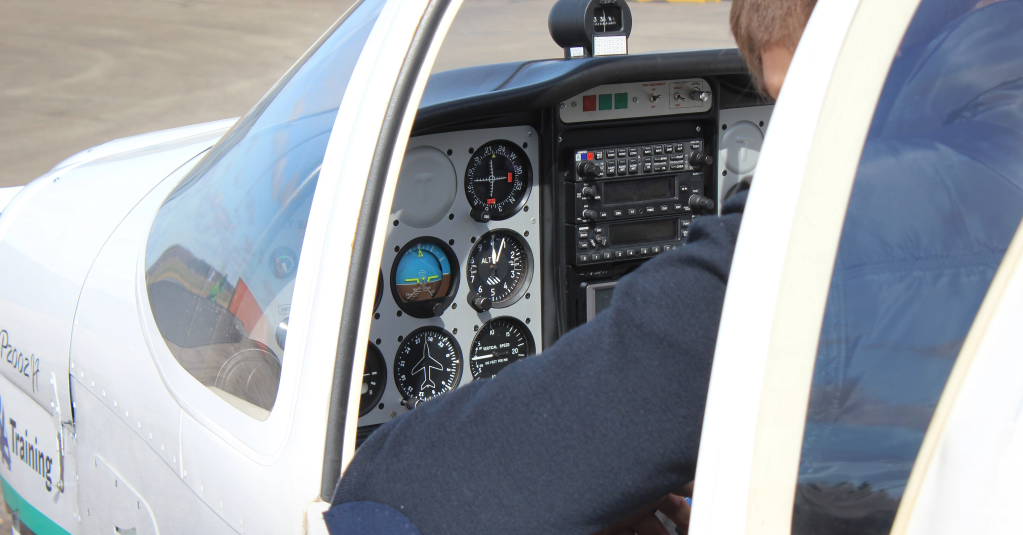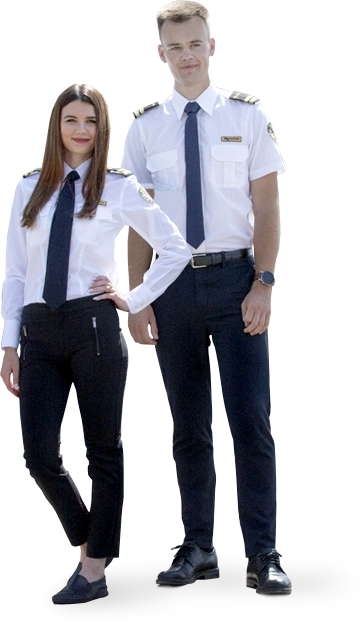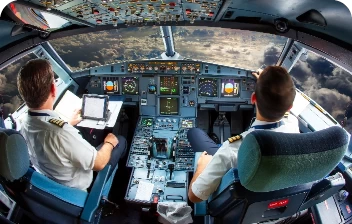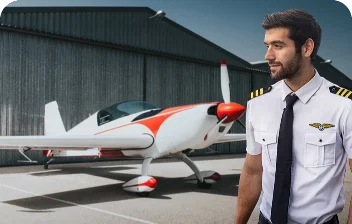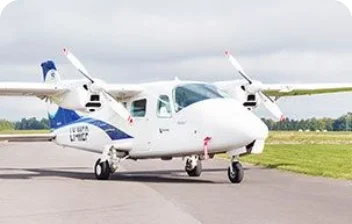
in-depth instrument knowledge

increase your flying time

step towards commercial operation
WHY CHOOSE
Instrument Flight Rules (IFR)?
The course trains private and commercial pilots to operate in clouds or under low visibility conditions, relying solely on instruments. Rather than visually scanning for other aircraft, pilots flying under IFR rely on ATC to prevent potential collisions, thus opening new opportunities and enhancing flight safety.
Gain in-depth instrument knowledge
You’ll study the airplane’s avionics equipment inside and out, understand how each of your aircraft’s instruments works, and learn how to react efficiently in case of instrument failure.
Increase your flying time
Flight cancellations due to adverse weather conditions are common. However, with the help of IFR, which enables you to fly through clouds, you’ll experience fewer flight cancelations. This way, you can keep working on increasing the number of flight hours in your logbook.
One more step towards commercial operation
Completion of IFR training is necessary for pilots who want to enter commercial aviation. An IFR endorsement and a pilot license are prerequisites for an MCC course and a Type Rating.
You can choose from a single-engine piston (SEP) or multi-engine piston (MEP) Instrument Rating.
WHY
BAA Training?
Full-scope pilot training, including Ab Initio and Type Rating
We often refer our students to partner airlines for employment
Admission assessments are developed in close collaboration with airlines, allowing to prepare highly qualified First Officers
We conduct training at an international airport so students get used to their future work environment early
Freedom to choose from in-class and virtual classroom theory training
Highly competent training instructors who, at the same time, work as airline Captains and First Officers
IFR program
structure
The training consists of 194 hours of theory (only applies to those who haven't passed 13 ATPL exams at the CAA) and 53 hours of flight training.
TOTAL DURATION:
180
theory
hours
532
flight
training
hours
IFR
theory
HOURS
194 (170 for PPL license holders)
MONTHS
3
IFR
flight training
HOURS
53
MONTHS
2
GOT QUESTIONS?
Get answersENTRY
requirements
Age
Over 18 years old
License
Valid EASA PPL or CPL license; 50 hours of cross-country flight as a pilot-in-command (PIC)
Physical status
Valid EASA 1st Class Medical Certificate
Theoretical preparation
ICAO level 4, passed ATP theory exams at CAA*
EXPLORE OUR
training locations!

Ground school:
Lleida-Alguaire in Spain
You will complete the theoretical part at Lleida-Alguaire Airport, the same spot where our flight school is based.
As the ground school is in close proximity to the flight school, students see the airplanes, flight instructors, maintenance team, and all the processes, which is a motivating factor for them.
The ground school is technologically-equipped to fit the evolving needs of modern learners.

Flight school:
Lleida-Alguaire in Spain
Our main flight base is in Spain, Lleida-Alguaire International Airport. It is a convenient location with developed infrastructure and a suitable climate for conducting training year-round.
You will practice on a Cessna or Tecnam type of aircraft and an FNPT II device.
FAQs
IFR
(Instrument Flight Rules)
Where will the training take place?
The training will take place at our flight base, in Lleida–Alguaire Airport in Spain.
STUDENT LIFE
at a Glance
















NOT SURE IF THIS PROGRAM IS
RIGHT FOR YOU?
